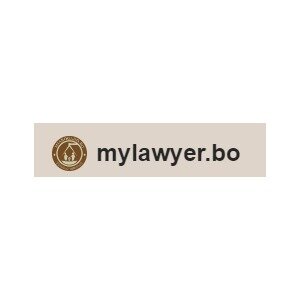Best Native People Lawyers in Bolivia
Share your needs with us, get contacted by law firms.
Free. Takes 2 min.
Or refine your search by selecting a city:
List of the best lawyers in Bolivia
About Native People Law in Bolivia
Bolivia is home to a rich tapestry of indigenous cultures, with over 36 recognized native groups. The native population, forming a significant percentage of Bolivia's demographics, includes renowned groups such as the Quechua, Aymara, Guaraní, and others. Bolivian law acknowledges the cultural and political rights of Indigenous Peoples through its constitution and various legislative measures. In 2009, the new constitution established the Plurinational State of Bolivia, recognizing the autonomy and self-governance of indigenous communities and promoting their right to maintain and develop their institutions, languages, and customs.
Why You May Need a Lawyer
There are several scenarios where indigenous people, or those interested in indigenous affairs, might require legal assistance in Bolivia:
- Land and Territory Rights: Disputes over ancestral lands and territories, often complicated by external interests from agriculture, mining, or energy sectors.
- Cultural Rights: Cases relating to the preservation of indigenous languages, customs, and cultural heritage.
- Autonomy and Self-Governance: Navigating the complexities of establishing and maintaining autonomous indigenous governments.
- Discrimination Issues: Legal challenges regarding racial or ethnic discrimination, including cases involving hate crimes or unequal treatment.
- Environmental Protections: Legal cases that arise due to exploitation or degradation of the natural environment in indigenous regions.
- Social Services and Benefits: Ensuring access to governmental programs intended to support indigenous populations.
Local Laws Overview
Bolivia's legal framework provides several key considerations for indigenous issues:
- The Constitution of Bolivia: Recognizes the rights of indigenous nations, granting them political autonomy, the right to manage their natural resources, and spiritual rights.
- Law No. 3760: Incorporates the United Nations Declaration on the Rights of Indigenous Peoples, reinforcing international standards of indigenous protections at the national level.
- Autonomy Law: Provides guidelines for indigenous communities to achieve self-governance and manage their internal affairs independently.
- Consultation Laws: Ensure that indigenous groups are consulted in matters affecting their lands and communities, particularly with regard to large-scale public or industrial projects.
- Environmental Laws: Offer protections to lands traditionally inhabited by indigenous groups, aiming to safeguard the ecological balance.
Frequently Asked Questions
What is the largest indigenous group in Bolivia?
The Quechua are the largest indigenous group in Bolivia, followed closely by the Aymara.
How does the Bolivian government support indigenous languages?
The Bolivian constitution mandates the official status of 36 indigenous languages alongside Spanish, promoting their use in education and public administration.
What rights do indigenous Bolivians have regarding natural resources?
Indigenous peoples have rights to manage and benefit from the natural resources on their ancestral lands, including participation in consultations about resource extraction projects.
Can indigenous communities govern themselves?
Yes, the Bolivian legal framework allows for indigenous communities to establish autonomous governments and judicial systems.
Is discrimination against indigenous peoples illegal in Bolivia?
Yes, the Bolivian constitution explicitly prohibits discrimination on the basis of ethnic or cultural origin, providing protections and recourse for victims.
How is indigenous heritage protected in Bolivia?
Laws protect tangible and intangible indigenous cultural heritage, requiring measures to preserve languages, traditions, and archaeological sites.
What role do indigenous groups play in environmental conservation?
Indigenous communities play a crucial role in Bolivia's environmental conservation due to their traditional knowledge and connection to their lands.
What are the challenges facing indigenous peoples in Bolivia?
Indigenous peoples face challenges such as land rights disputes, economic marginalization, and environmental threats from industrial activities.
How can indigenous people obtain legal assistance in Bolivia?
Indigenous peoples can seek legal assistance from specialized legal organizations, government bodies, or private attorneys knowledgeable in indigenous law.
Are there NGOs that support indigenous rights in Bolivia?
Yes, there are numerous NGOs in Bolivia dedicated to advancing indigenous rights, such as CEJIS (Centro de Estudios Jurídicos e Investigación Social) and CIDOB (Confederación de Pueblos Indígenas de Bolivia).
Additional Resources
For individuals seeking further information or legal support, the following resources can be valuable:
- Bolivian Ministry of Indigenous Affairs: Provides government support and information on indigenous rights and policies.
- Centre for Legal Studies and Social Research (CEJIS): Offers legal aid and research focused on social justice and indigenous rights.
- Confederation of Indigenous Peoples of Bolivia (CIDOB): Represents the interests of various indigenous groups at both the national and international level.
- Defensoría del Pueblo (Ombudsman’s Office): Addresses human rights violations and provides guidance on legal recourse.
Next Steps
If you find yourself needing legal assistance related to native people in Bolivia, consider the following steps:
- Contact a lawyer or legal firm experienced in indigenous law and familiar with the local legal landscape.
- Reach out to indigenous rights organizations for guidance and possible representation or support.
- Visit governmental bodies such as the Ministry of Indigenous Affairs for direct support and information.
- Document all relevant details and evidence related to your legal issue for a more comprehensive understanding by legal professionals.
- Engage with community leaders and representatives who can provide insights and advocacy support.
Lawzana helps you find the best lawyers and law firms in Bolivia through a curated and pre-screened list of qualified legal professionals. Our platform offers rankings and detailed profiles of attorneys and law firms, allowing you to compare based on practice areas, including Native People, experience, and client feedback.
Each profile includes a description of the firm's areas of practice, client reviews, team members and partners, year of establishment, spoken languages, office locations, contact information, social media presence, and any published articles or resources. Most firms on our platform speak English and are experienced in both local and international legal matters.
Get a quote from top-rated law firms in Bolivia — quickly, securely, and without unnecessary hassle.
Disclaimer:
The information provided on this page is for general informational purposes only and does not constitute legal advice. While we strive to ensure the accuracy and relevance of the content, legal information may change over time, and interpretations of the law can vary. You should always consult with a qualified legal professional for advice specific to your situation.
We disclaim all liability for actions taken or not taken based on the content of this page. If you believe any information is incorrect or outdated, please contact us, and we will review and update it where appropriate.
Browse native people law firms by city in Bolivia
Refine your search by selecting a city.











